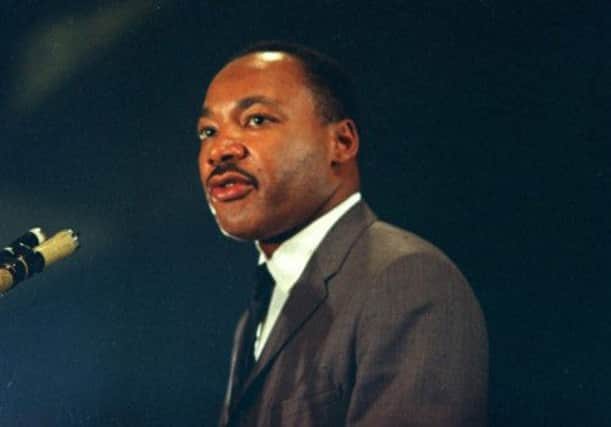Andrew Wilson: Unions must be partners in progress


I think it is fair to say that Martin Luther King could string his words together. This is one of his less famous quotations, but the poetry of it is trademark. And the truth is too.
It is, in essence, that if we can fairly balance the returns to the factors producing wealth, then the greater good of all is secured. Beggaring the labouring classes to secure short-term returns to capital will only destroy the health of the economy and the functioning of the market in the longer term.
Advertisement
Hide AdAdvertisement
Hide AdConversely, failing to recognise the need to reward the great initiative and courage of risk-bearing and investment will only see us slip behind in the international race for progress. If the representatives of labour abuse their power or fail to recognise commercial competitive reality then all can lose, and they have.
All of this seems obvious now from a cursory glance at Britain’s economic history. Companies, industries and regions have failed needlessly when vision and partnership could have seen them reform to a sustainable future. And right now, despite the enduring strength of their membership and financial power, Britain’s trade unions underperform the potential they have to do good.
Labour’s share of the wealth created in the economies of the developed world is at inter-generational lows. In the face of mobile capital and globalisation the arbitrage of human returns is easy for major corporates to secure.
On the face of it, the resulting lowering of the cost of consuming the goods that are produced can raise living standards tomorrow. But in reality, as the Luther King statement articulates, it is only when the consumer is strengthened that the long-term health of the economy can be secured. The vast majority of consumers labour for their income. QED.
So where next for trade unions? We live in a world in the grip of a reform era of epic proportions. Each and every institution of life needs to refocus on its purpose and perform transparently. We can list the institutions that are facing into the gale of criticism and must change to survive: churches, politics, the media, banks, business, utilities, the BBC – the list goes on. To it we can surely add trade unions.
I grew up in Lanarkshire, where the working people dug the deepest coal and forged the hardest steel. They fuelled and built the industry that sustained an empire and secured victory in two world wars. In many respects, the Labour movement can trace part of its roots to that great county. James Keir Hardie was born there, of course, and there can be no doubt that without the representation of collective labour so many lives would have been diminished fundamentally. Before Ravenscraig steelworks closed, this was an area with strong incomes and proud work. We even had a House of Fraser department store on Wishaw main street.
But times changed. And, as the aftermath of Unite’s difficulties over Grangemouth shows, the opportunity is alive now for trade unions to face their future with optimism, but only if they reform and change fundamentally.
Today’s worker is sophisticated and informed. They don’t need their subscriptions used for partisan party politics or game playing by full-time officials. They need high-quality representation, research and policy development and ideas for how life can be made better. At their best, the trade unions can transform the understanding of policy-makers and bring perspective to the benefits of employee rights. The quiet voice of the employee needs collective strength if it is to be listened to. And as the economic history of the past few years proves, the power of the establishment holds no monopoly of wisdom.
Advertisement
Hide AdAdvertisement
Hide AdBy playing with the politics of the Labour Party, unions have diminished themselves with a party that in its head, if not its heart, would rather it didn’t have to depend on them for cash. Time to move on. Time for them to stress their independence of party and rediscover the modern expression of the reason they exist.
As with every other battle in life it is rarely about “us” versus “them”; it is about “we” and how we can secure the competitive but fair basis on which our economy can succeed in an every more ferocious world market.
There has never been a greater need for the modern voice of labour engaged positively in securing the rights of their members and the betterment of the economy and society. The challenge for the trade union leadership is have they got what it takes to make the transition. If not, others must replace them or their cause will falter and die. And with that we would all be the poorer. «
Twitter: @AndrewWilsonAJW